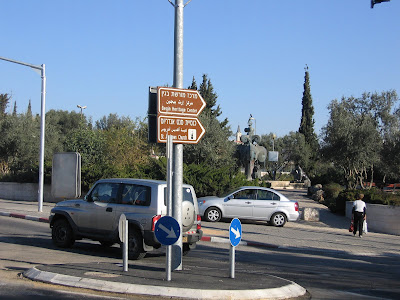Nevertheless, these, too, are part of Menachem Begin's legacy.
The following is something we found (here) on Begin and Iran:
...The Israeli government was another deeply interested player in the Iran crisis. For decades, Israel had cultivated covert ties with the Shah’s regime as part of a Periphery Strategy of forming alliances with non-Arab states in the region to prevent Israel’s Arab enemies from focusing all their might against Israel.
Though losing an ally when the Shah fell and offended by the anti-Israeli rhetoric from the Khomeini regime, Israel had gone about quietly rebuilding relations with the Iranian government.
One of the young Israeli intelligence agents assigned to this task was an Iranian-born Jew named Ari Ben-Menashe, who had immigrated to Israel as a teen-ager and was valuable because he spoke fluent Farsi and still had friends in Iran, some of whom were rising within the new revolutionary bureaucracy.
In his own 1992 memoir, Profits of War, Ben-Menashe said the view of Israel’s Likud leaders, including Prime Minister Menachem Begin, was one of contempt for Jimmy Carter in the late 1970s.
“Begin loathed Carter for the peace agreement forced upon him at Camp David,” Ben-Menashe wrote. “As Begin saw it, the agreement took away Sinai from Israel, did not create a comprehensive peace, and left the Palestinian issue hanging on Israel’s back.”
After the Shah fell, Begin grew even more dissatisfied with Carter’s handling of the crisis and alarmed over the growing likelihood of an Iraqi attack on Iran’s oil-rich Khuzistan province. Israel saw Iraq’s Saddam Hussein as a far greater threat to Israel than Iran’s Khomeini.
Ben-Menashe wrote that Begin, recognizing the Realpolitik needs of Israel, authorized shipments to Iran of small arms and some spare parts, via South Africa, as early as September 1979.
After the U.S. hostages were taken in November 1979, the Israelis came to agree with Copeland’s hard-headed skepticism about Carter’s handling of the hostage issue, Ben-Menashe wrote. Even though Copeland was generally regarded as a CIA “Arabist” who had opposed Israeli interests in the past, he was admired for his analytical skills, Ben-Menashe wrote.
“A meeting between Miles Copeland and Israeli intelligence officers was held at a Georgetown house in Washington, D.C.,” Ben-Menashe wrote. “The Israelis were happy to deal with any initiative but Carter’s.
“David Kimche, chief of Tevel, the foreign relations unit of Mossad, was the senior Israeli at the meeting. … The Israelis and the Copeland group came up with a two-pronged plan to use quiet diplomacy with the Iranians and to draw up a scheme for military action against Iran that would not jeopardize the lives of the hostages.”
In late February 1980, Seyeed Mehdi Kashani, an Iranian emissary, arrived in Israel to discuss Iran’s growing desperation for aircraft spare parts, Ben-Menashe wrote. Kashani, whom Ben-Menashe had known from their school days in Teheran, also revealed that approaches from some Republican emissaries had already been received in Iran, Ben-Menashe wrote.
“Kashani said that the secret ex-CIA-Miles-Copeland group was aware that any deal cut with the Iranians would have to include the Israelis because they would have to be used as a third party to sell military equipment to Iran,” according to Ben-Menashe.
In March, the following month, the Israelis made their first direct military shipment to Iran, 300 tires for Iran’s F-4 fighter jets, Ben-Menashe wrote...
...By April 1980, Carter’s patience was wearing thin, both with the Iranians and some U.S. allies. After discovering that the Israelis had made a secret shipment of 300 tires to Iran, Carter complained to Prime Minister Begin.
“There had been a rather tense discussion between President Carter and Prime Minister Begin in the spring of 1980 in which the President made clear that the Israelis had to stop that, and that we knew that they were doing it, and that we would not allow it to continue, at least not allow it to continue privately and without the knowledge of the American people,” Carter’s press secretary Jody Powell told me. “And it stopped” – at least temporarily.
Questioned by congressional investigators a dozen years later, Carter said he felt that by April 1980, “Israel cast their lot with Reagan,” according to notes I found among the unpublished documents in the files of a House Task Force, which examined the October Surprise controversy in 1992. Carter traced the Israeli opposition to his reelection to a “lingering concern [among] Jewish leaders that I was too friendly with Arabs.”
Carter’s National Security Adviser Zbigniew Brzezinski also recognized the Israeli hostility. Brzezinski said the Carter White House was well aware that the Begin government had “an obvious preference for a Reagan victory.”












